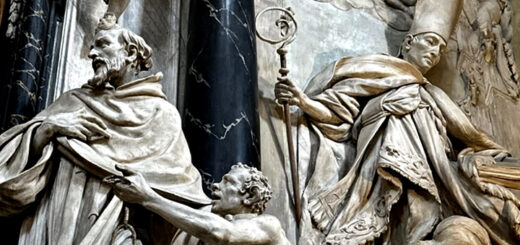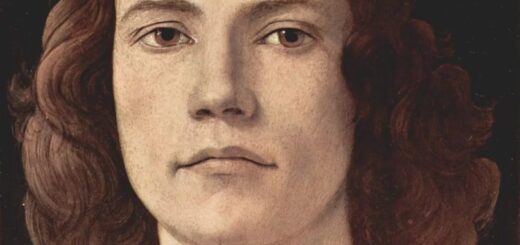Il sacro nel quotidiano. Storie di fede e di coraggio nelle vite delle persone transgender
Reflections by Carl Siciliano taken from his book Making Room: Three Decades of Fighting for Beds, Belonging, and a Safe Place for LGBTQ Youth (Making Space: Three Decades of Fighting for a Bed, Belonging, and a Safe Place for LGBTQ Youth), Convergent publisher, 2024, chapter 1, paragraph 2, freely translated by the Gionata Project volunteers
SafeSpace, a center for homeless youth in New York (United States), was located half a block from Times Square, in a three-story building belonging to the nearby Episcopal Church of Saint Mary the Virgin, known affectionately as “Smoky Mary's” for the abundant use of incense during solemn celebrations. A church that attracted many gay men, fascinated by the almost theatrical character of its sumptuous liturgical worship.
Often, while we were taking care of the children staying in the homeless center, the aroma of incense and the sound of the church organ could also be felt in the rooms of the center through the walls. But you didn't need organs or incense to sense God's presence at SafeSpace. It was everywhere.
I sensed an aura of divinity in all our kids he helped, but particularly among the young transgender women. I admired their courage, the price they were willing to pay to be faithful to the deepest part of themselves. Or, as I saw it, to the deepest part of their soul. They were not free from the flaws common to humanity, but they seemed to burn with a sacred authenticity.
In my reading about the lives of the saints, I had been struck by the radical steps many had taken to honor the truths of their faith, renouncing family, money, and social status. The young women who frequented SafeSpace were no less devoted to their inner truth; they too had given up everything. It was a privilege to be among them.
If there was anyone who most embodied the raw spirituality present at SafeSpace, it was Ali Forney. The first thing that struck me about Ali was the way he experienced his gender, which was different from that of the other young transgender people at SafeSpace. Ali transitioned fluidly from masculine to feminine, between Ali and his alter ego, “Luscious.”
Compared to her transgender friends, many of whom took hormones, consistently presented as women, and adhered to their identity as a matter of life and death, Ali's way of inhabiting gender seemed mischievous, as if she enjoyed breaking roles I waited, treating the genre as an ever-changing kaleidoscope, for an opportunity to reveal itself. Ali defined himself as “a man in a suit and a wig.”
Typically, he spent his days at SafeSpace dressed as a boy, introducing himself as Ali. After dinner, however, he would go down to his locker in the cellar and change into women's clothes, wig and makeup, like Clark Kent transforming into Superwoman. Then Luscious walked back up the stairs in all her glory, ready for a night of sex work on the streets.
During my first week, I noticed that Ali filled his backpack with a large quantity of the condoms that they made available to guests at our center. I asked a colleague what he could do with so many. “Ali is famous for this,” was the reply. “He cares so much about his friends who work with him on the sidewalk, that every day he fills that backpack with hundreds of condoms. He wants to protect them from HIV.”
In our building, I watched Ali chat with the staff, joking about their clothing and romantic prospects. There was always a radiant smile on his face, and he would tilt his head towards them, and listen with joyful attention. Many of the kids were much more guarded—they had been hurt and betrayed so often by adults that it was difficult for them to trust. Ali had been no less hurt, but there was something extraordinary about his ability to be so generous with his affection.
Ali shone with divine compassion in these personal interactions, but it was during SafeSpace's first talent show that I truly felt he took us all to church. The show was held in the spring of 1995, in an auditorium two blocks from SafeSpace.
For weeks the kids had been rehearsing their routines, a combination of typical high school performances like singing, rapping, and reciting poetry (but with far more drag and voguing than ever seen at my suburban Connecticut school). The evening was fun, exuberant, celebratory, light-hearted. Until Ali took the stage and unexpectedly led us into deeper territory.
Ali closed the show with a gospel, “His Eye Is on the Sparrow.” He sang painfully off-key, but the performance was incredibly heartfelt – his eyes were closed, his hands gestured expressively, his head moved slowly from side to side as he intoned: “I sing because I'm happy, I sing because I'm free.” It seemed he was evoking a deep part of himself.
Then Ali moved into an impromptu sermon, clearly inspired by the religious services he had attended as a child. With a miraculous combination of abandon and self-possession, he began to preach in a rhythm halfway between singing and speaking:
"I believe that one day, the Lord will come back for me. Alleluia. If I live righteously, hallelujah, I'll go to that right place! I believe that one day, all my trials, all my tribulations, will be over. I won't have to worry about crying and suffering anymore. I will no longer have to worry about being disappointed, because my God, he will come back for me.”
Ali paced back and forth with playful gravity at the front of the stage, one hand occasionally slapping his leg or resting momentarily on his hip. Each phrase was punctuated by a blues chord on the electric organ. Occasionally, Ali would stop and lean toward the audience to emphasize a certain syllable, sometimes prolonging it, more sung than spoken.
"Whether I am a man in a dress and a wig, my God will love me for who I am! I may not walk as I should. I may not have sex with who I should. My God will love me for who I am!”
Then Ali took off her wig, revealing short braided hair.
"So don't worry about me, worry about yourselves. Because as long as my God believes in me, I don't care what anyone else says.”
“My God will love me for who I am...”
I had never witnessed such a determined proclamation of God's love for queer people. It hit me like sweet water flowing into a mouth parched with thirst. Looking at Ali, I almost couldn't breathe. I felt amazed, but also deeply challenged.
It was a time in my life when my own faith was wavering, marked by the Catholic Church's rejection of LGBT+ people. A nagging question burned inside me: How can one absorb such profound rejection and loss without being crushed by it? Ali's appearance at the talent show gave me hope for an answer.
Ali, was a boy who had faced more adversity, abuse and rejection than I could imagine, he wasn't destroyed by it. She refused to be trapped in bitterness.
It was anchored in a love so vast that it made the hostilities and rejections that had uprooted me as insignificant as specks of dust.
I knew then that I was in the company of someone extraordinary. What I had no idea then was the power Ali's heart had to mend so much of what had been broken in the lives of other marginalized queer youth and in the world's response to them. And the power it had to transform some of the broken things inside me.
Original text: Lives of the Saints






